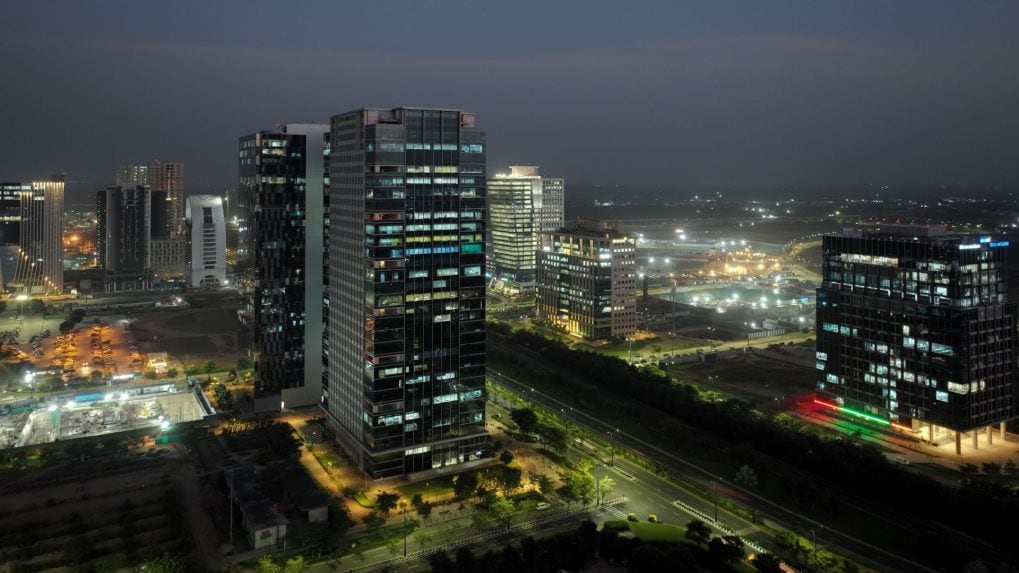Digital
Why OpenAI is hiring 100 ex-bankers: Inside the ChatGPT-maker's secret project to automate Wall Street's grunt work

The Gujarat International Finance Tec-City (GIFT City), situated between Ahmedabad and Gandhinagar, has become a dynamic hub for global capability centres (GCCs) in India, propelled by state government policies, upgraded infrastructure, and talented local professionals.
According to Peush Jain, MD - Commercial Leasing & Advisory, ANAROCK Group, GIFT City is home to over 35 GCCs across its 880-acre campus today. These centres have together generated revenues topping $64 billion, and attracted over Rs 10,000 crore in investments under Gujarat’s policy initiatives.
Deloitte's India's Culture Report 2025 underscored the prominence of GCCs, which earned a score of 82 on workplace culture compared to sectors like technology, consumer, financial services, energy, and media. The ratings incorporated workplace inclusivity, employee welfare, learning and development, career progression, merit-based rewards, performance recognition, and job security.
Saurabh Dwivedi, Partner at Deloitte India, told Storyboard18, "GCCs are moving beyond bureaucracy and work-life balance concerns by rolling out more inclusive, employee-focused policies, such as sabbatical and caregiver leave, flexible work options, and structured career development programs. Internal job postings are on the rise, and some progressive GCCs are even enabling global mobility for India-based talent to take up roles in parent organizations abroad, something that used to be ad hoc but is now becoming much more structured. On top of that, there’s a strong push toward leadership development, not just on the technical side but in areas like people management, business, and commercial leadership".
"The focus now is on becoming true talent destinations, not just fallback options," Dwivedi added.
Last month, Edelweiss Mutual Fund and ICICI Prudential Asset Management Company joined the growing list of established GCCs at GIFT City, alongside global names such as Capgemini, Google, Oracle, IBM, Barclays, Bank of America, Deutsche Bank, HSBC, Citigroup, Infineon Technologies, among others.
'GCCs beyond metros'
The GCC's expansion is not limited to GIFT City. These centres are also accelerating in tier-2 locations such as Bhubaneshwar, Coimbatore, Kochi, and Chandigarh, where promising talent pools are attracting interest.
Dwivedi explained, “Post-COVID pandemic, talent is showing a clear preference to stay closer to their native places. The appeal of moving to large metro cities has diminished, as people have realized they can perform just as effectively from anywhere. The pandemic highlighted that the cost of living in big cities is much higher, while similar job opportunities are now accessible in smaller cities closer to home.”
Industry estimates suggest that GCCs and related global centres in the Ahmedabad–Gandhinagar–GIFT City region together employ around 8,000–10,000 professionals currently. Notably, Gujarat government’s new GCC policy aiming to add 50,000 jobs over the next few years, the current employment base is expected to multiply as new centres begin operations, said Neeti Sharma, CEO, TeamLease Digital. "The bulk of incremental hiring is projected in high-value domains such as financial services, IT-enabled services, and product engineering, which are already seeing early traction," Sharma added.
At present, India is home to around 1,900 GCCs, with more than 120 set up since January 2023.
"Until about two years ago, we would see one or two GCCs being set up every fortnight. Today, that pace has doubled, with nearly two GCCs coming up every week," Dwivedi added.
Moreover, GCCs are also emerging as a stable career refuge for tech professionals at a time when IT services firms are navigating global uncertainties.
Sharma projects recruitment at GCCs to rise by 50-75% year-on-year during fiscal 2025-26. "GCCs are expected to create up to 3.8 lakh new jobs over the next 5-6 quarters," she said.
'Gift City vs Metro hubs'
India's metros have carved their niches over the past few decades: Bengaluru as a powerhouse for IT/ITeS and startups, followed by Hyderabad, and Mumbai as the centre of BFSI, pharma, and media.
While GIFT City's occupier base is smaller than these metros, it has witnessed a notable commercial activity in the last few years, and positioning itself as a rising global financial centre, Jain said.
Dwivedi sees Gandhinagar having the potential to become the next Bengaluru or Hyderabad. “When global organizations evaluate a city or state, the first factor they consider is the strength of its academic infrastructure—what kind of talent is available locally in areas like engineering, finance, and accounting. From a finance perspective, Gandhinagar is strong, almost a goldmine. But more needs to be done for it to become a preferred GCC hub in the next wave of expansion. That said, the Gujarat government’s new policy is definitely moving in the right direction," he said.
GCC momentum shifts: Bengaluru leads, Hyderabad rises, tier-2 cities surge 21% in hub-and-spoke boom
Workplace culture expert Sanjeeta Mohta of Learning Spiral agrees that Gandhinagar has the caliber and opportunity to shape itself differently.
"The city may not develop with the same roar (this is true), but may hum sweetly in clarity—fewer jobs maybe, but of higher value, higher specialization, longer-term sustainability".
From purpose-driven work and narrative-rich brand films to AI-enabled ideas and creator-led collaborations, the awards reflect the full spectrum of modern creativity.
Read MoreIn a wide-ranging interview with Storyboard18, Sorrell delivers his frankest assessment yet of how the deal will redefine creativity, media, and talent across markets.